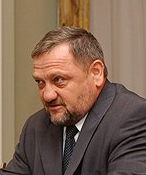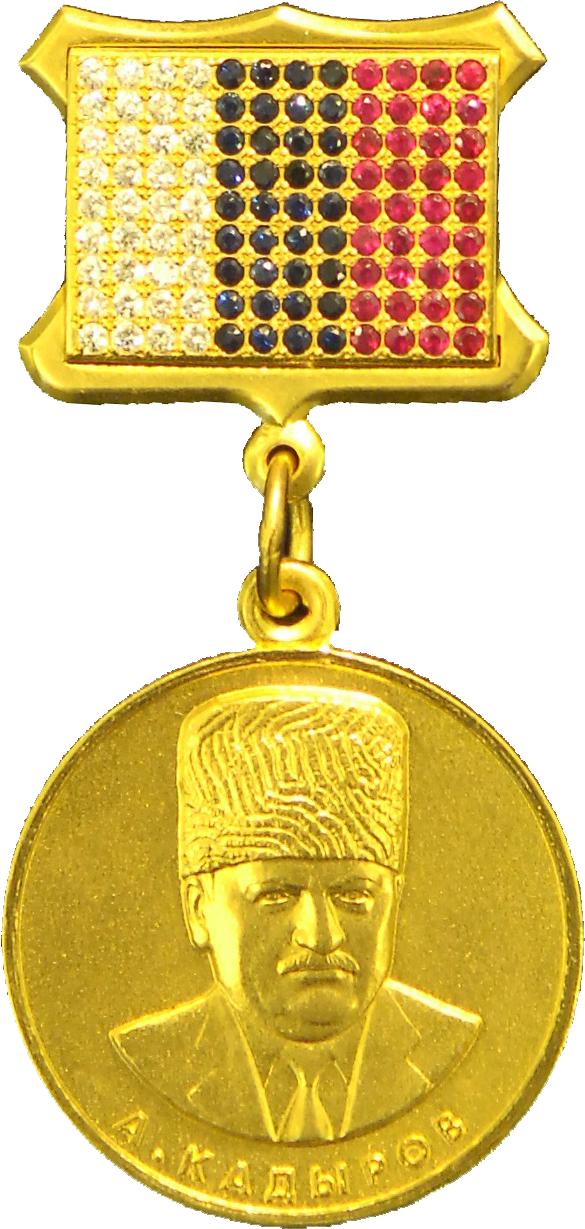|
2014 Grozny Bombing
The 2014 Grozny bombing was a terrorist attack in the city of Grozny, Chechen Republic, Russia. On October 5, 2014, a 19-year-old man named Opti Mudarov went to the town hall where an event was taking place to mark Grozny City Day celebrations coinciding with the birthday of Chechen President Ramzan Kadyrov Ramzan Akhmadovich Kadyrov ce, КъадаргӀеран Ахьмат-кӏант Рамзан, translit= (born 5 October 1976) is a Russian politician who currently serves as the Head of the Chechen Republic. He was formerly affiliated to the .... Police officers noticed him acting strangely and stopped him. The officers began to search him and the bomb which Mudarov had been carrying exploded. Five officers, along with the suicide bomber, were killed, while 12 others were wounded. References {{DEFAULTSORT:Grozny bombing 21st-century mass murder in Russia Terrorist incidents in Russia in 2014 Suicide bombings in Russia Mass murder in 2014 Insurgency in the Nort ... [...More Info...] [...Related Items...] OR: [Wikipedia] [Google] [Baidu] |
Grozny
Grozny ( rus, Грозный, p=ˈgroznɨj; ce, Соьлжа-ГӀала, translit=Sölƶa-Ġala), also spelled Groznyy, is the capital city of Chechnya, Russia. The city lies on the Sunzha River. According to the 2010 census, it had a population of 271,573 — up from 210,720 recorded in the 2002 census, but still only about two-thirds of 399,688 recorded in the 1989 census. It was previously known as (until 1870). Names In Russian, "Grozny" means "fearsome", "menacing", or "redoubtable", the same word as in Ivan Grozny ( Ivan the Terrible). While the official name in Chechen is the same, informally the city is known as "" (""), which literally means "the city () on the Sunzha River ()". In 1996, during the First Chechen War, the Chechen separatists renamed the city Dzhokhar-Ghala ( ce, Джовхар-ГӀала, Dƶovxar-Ġala), literally Dzhokhar City, or Dzhokhar/Djohar for short, after Dzhokhar Dudayev, the first president of the Chechen Republic of Ichker ... [...More Info...] [...Related Items...] OR: [Wikipedia] [Google] [Baidu] |
Chechnya
Chechnya ( rus, Чечня́, Chechnyá, p=tɕɪtɕˈnʲa; ce, Нохчийчоь, Noxçiyçö), officially the Chechen Republic,; ce, Нохчийн Республика, Noxçiyn Respublika is a republic of Russia. It is situated in the North Caucasus of Eastern Europe, close to the Caspian Sea. The republic forms a part of the North Caucasian Federal District, and shares land borders with the country of Georgia to its south; with the Russian republics of Dagestan, Ingushetia, and North Ossetia-Alania to its east, north, and west; and with Stavropol Krai to its northwest. After the dissolution of the Soviet Union in 1991, the Checheno-Ingush ASSR split into two parts: the Republic of Ingushetia and the Chechen Republic. The latter proclaimed the Chechen Republic of Ichkeria, which sought independence. Following the First Chechen War of 1994–1996 with Russia, Chechnya gained ''de facto'' independence as the Chechen Republic of Ichkeria, although ''de jure'' it rem ... [...More Info...] [...Related Items...] OR: [Wikipedia] [Google] [Baidu] |
Russia
Russia (, , ), or the Russian Federation, is a List of transcontinental countries, transcontinental country spanning Eastern Europe and North Asia, Northern Asia. It is the List of countries and dependencies by area, largest country in the world, with its internationally recognised territory covering , and encompassing one-eighth of Earth's inhabitable landmass. Russia extends across Time in Russia, eleven time zones and shares Borders of Russia, land boundaries with fourteen countries, more than List of countries and territories by land borders, any other country but China. It is the List of countries and dependencies by population, world's ninth-most populous country and List of European countries by population, Europe's most populous country, with a population of 146 million people. The country's capital and List of cities and towns in Russia by population, largest city is Moscow, the List of European cities by population within city limits, largest city entirely within E ... [...More Info...] [...Related Items...] OR: [Wikipedia] [Google] [Baidu] |
Caucasus Emirate
The Caucasus Emirate ( ce, Имарат Кавказ, Imarat Kavkaz, IK; russian: Кавказский эмират, Kavkazskiy emirat), also known as the Caucasian Emirate, Emirate of Caucasus, or Islamic Emirate of the Caucasus, was a Jihadist organisation active in rebel-held parts of Syria and previously in the North Caucasus region of Russia. Its intention was to expel the Russian presence from the North Caucasus and to establish an independent Islamic emirate in the region. The ''Caucasus Emirate'' also referred to the state that the group sought to establish. The creation of Caucasus Emirate was announced on 7 October 2007, by Chechen warlord Dokka Umarov, who became its first self-declared "emir"."Two years of Imarat Kavkaz: jihad spreads over Russia's south" , ''Caucasian Kn ... [...More Info...] [...Related Items...] OR: [Wikipedia] [Google] [Baidu] |
Chechen Republic
Chechnya ( rus, Чечня́, Chechnyá, p=tɕɪtɕˈnʲa; ce, Нохчийчоь, Noxçiyçö), officially the Chechen Republic,; ce, Нохчийн Республика, Noxçiyn Respublika is a republic of Russia. It is situated in the North Caucasus of Eastern Europe, close to the Caspian Sea. The republic forms a part of the North Caucasian Federal District, and shares land borders with the country of Georgia to its south; with the Russian republics of Dagestan, Ingushetia, and North Ossetia-Alania to its east, north, and west; and with Stavropol Krai to its northwest. After the dissolution of the Soviet Union in 1991, the Checheno-Ingush ASSR split into two parts: the Republic of Ingushetia and the Chechen Republic. The latter proclaimed the Chechen Republic of Ichkeria, which sought independence. Following the First Chechen War of 1994–1996 with Russia, Chechnya gained ''de facto'' independence as the Chechen Republic of Ichkeria, although ''de jure'' it remained ... [...More Info...] [...Related Items...] OR: [Wikipedia] [Google] [Baidu] |
Chechen President
The Head of the Chechen Republic or Head of Chechnya (russian: Глава Чеченской Республики, italic=yes, ce, Мехкада Нохчийн Республика; formerly President of the Chechen Republic or President of Chechnya until 5 March 2011) is the highest office within the political system of the Chechen Republic, as Head of State and Head of Government of Chechnya. The office was instituted in 2003 during the course of the Second Chechen War, when the Russian federal government regained control over the region and after a constitutional referendum approved the current Constitution of the Chechen Republic. Eligibility According to the article 66 of the Constitution of the Chechen Republic, a citizen of Russia, no younger than thirty years old, may be elected Head. The term is for five years, with no limits on serving multiple terms (prior to the 2007 constitutional referendum the Head was elected for four years, with a two term limit). The Head ... [...More Info...] [...Related Items...] OR: [Wikipedia] [Google] [Baidu] |
Ramzan Kadyrov
Ramzan Akhmadovich Kadyrov ce, КъадаргӀеран Ахьмат-кӏант Рамзан, translit= (born 5 October 1976) is a Russian politician who currently serves as the Head of the Chechen Republic. He was formerly affiliated to the Chechen Independence movement, through his father who was the separatist appointed mufti of Chechnya. He is a colonel general in the Russian military. Kadyrov is the son of former Chechen President Akhmad Kadyrov, who switched sides in the Second Chechen War by offering his service to Vladimir Putin's administration in Russia and became Chechen president in 2003. Akhmad Kadyrov was assassinated in May 2004. In February 2007, Ramzan Kadyrov replaced Alu Alkhanov as president, shortly after he had turned 30, which is the minimum age for the post. He was engaged in violent power struggles with Chechen commanders Sulim Yamadayev (d. 2009) and Said-Magomed Kakiyev for overall military authority, and with Alkhanov for political authority. Si ... [...More Info...] [...Related Items...] OR: [Wikipedia] [Google] [Baidu] |
21st-century Mass Murder In Russia
The 1st century was the century spanning AD 1 ( I) through AD 100 ( C) according to the Julian calendar. It is often written as the or to distinguish it from the 1st century BC (or BCE) which preceded it. The 1st century is considered part of the Classical era, epoch, or historical period. The 1st century also saw the appearance of Christianity. During this period, Europe, North Africa and the Near East fell under increasing domination by the Roman Empire, which continued expanding, most notably conquering Britain under the emperor Claudius (AD 43). The reforms introduced by Augustus during his long reign stabilized the empire after the turmoil of the previous century's civil wars. Later in the century the Julio-Claudian dynasty, which had been founded by Augustus, came to an end with the suicide of Nero in AD 68. There followed the famous Year of Four Emperors, a brief period of civil war and instability, which was finally brought to an end by Vespasian, ninth Roman emperor, a ... [...More Info...] [...Related Items...] OR: [Wikipedia] [Google] [Baidu] |
Terrorist Incidents In Russia In 2014
Terrorism, in its broadest sense, is the use of criminal violence to provoke a state of terror or fear, mostly with the intention to achieve political or religious aims. The term is used in this regard primarily to refer to intentional violence during peacetime or in the context of war against non-combatants (mostly civilians and neutral military personnel). The terms "terrorist" and "terrorism" originated during the French Revolution of the late 18th century but became widely used internationally and gained worldwide attention in the 1970s during the Troubles in Northern Ireland, the Basque conflict, and the Israeli–Palestinian conflict. The increased use of suicide attacks from the 1980s onwards was typified by the 2001 September 11 attacks in the United States. There are various different definitions of terrorism, with no universal agreement about it. Terrorism is a charged term. It is often used with the connotation of something that is "morally wrong". Governments and ... [...More Info...] [...Related Items...] OR: [Wikipedia] [Google] [Baidu] |




